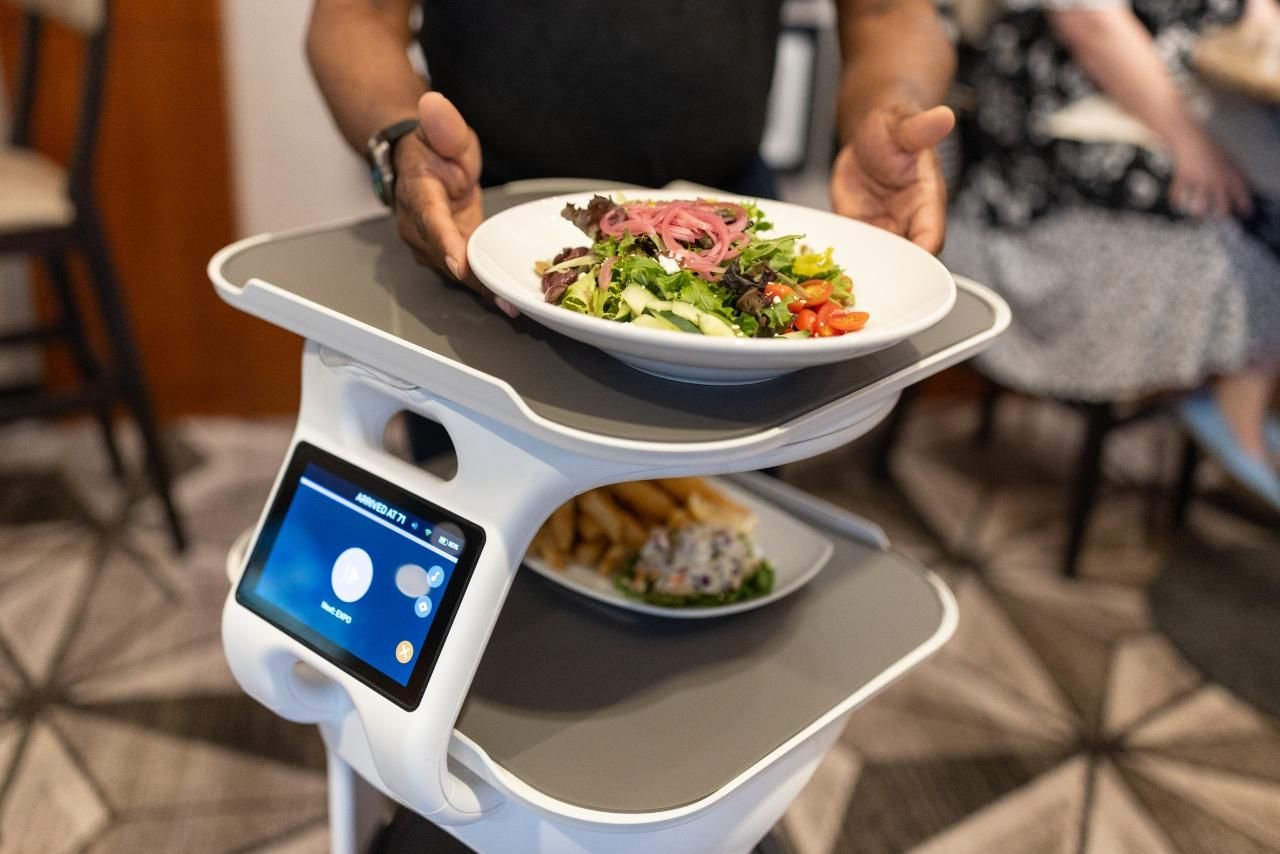University of Houston powers up first robot food server in a U.S. restaurant
order up
The University of Houston is taking a bold step — or, in this case, roll — in foodservice delivery. UH's Conrad N. Hilton College of Global Hospitality Leadership is now deploying a robot server in Eric’s Restaurant at its Hilton College.
Booting up this new service is major bragging rights for the Coogs, as UH is now the only college in the country — and the only restaurant facility in Houston — to utilize a robotic food delivery.
These rolling delivery bots come from the state-of-the-art food service robot called Servi. The bots, created by Bear Robotics, are armed with LiDar sensors, cameras, and trays, and automatically return to their posts when internal weight sensors detect a delivery has been completed.
Not surprisingly, these futuristic food staffers are booting up plenty of buzz at UH.
“People are excited about it,” says Dennis Reynolds, who is dean of the Conrad N. Hilton College of Global Hospitality Leadership and oversees the only hospitality program in the world where students work and take classes in an internationally branded, full-service hotel. Launching robot waitstaff at UH as a test market makes sense, he notes, for practical use and larger implications.

“Robotics and the general fear of technology we see today are really untested in the restaurant industry,” he says in an announcement. “At Hilton College, it’s not just about using tomorrow’s technology today. We always want to be the leader in learning how that technology impacts the industry.”
Bear Robotics, a tech company founded by restaurant experts and tech entrepreneurs, hosted a Servi showcase at the National Restaurant Show in Chicago earlier this year. After seeing the demo, Reynolds was hooked. UH's Servi robot arrived at Eric’s Restaurant in October.
Before sending the bot to diners' tables, the bot was prepped by Tanner Lucas, the executive chef and foodservice director at Eric’s. That meant weeks of mapping, programming, and — not surprisingly — “test driving” around the restaurant.
Tanner even created a digital map of the restaurant to teach the Servi its pathways and designated service points, such as table numbers. “Then, we sent it back and forth to all of those points from the kitchen with food to make sure it wouldn’t run into anything," he adds.
But does having a robot deliver food create friction between human and automated staff? Not at Eric's. “The robot helps my workflow,” Joel Tatum, a server at Eric’s says. “It lets me spend more time with my customers instead of just chasing and running food.”

Reynolds believes robots will complement their human counterparts and actually enhance the customer experience, even in unlikely settings.
“Studies have been conducted in senior living facilities where you might think a robot wouldn’t be well received, but it’s been just the opposite,” Reynolds says. “Those residents saw the change in their lives and loved it.”
To that end, he plans to use Servi bots in other UH venues. “The ballroom would be a fantastic place to showcase Servi – not as a labor-saving device, but as an excitement generator,” Reynolds notes. “To have it rotating through a big event delivering appetizers would be really fun.”
Critics who denounce robot servers and suggest they will soon displace humans are missing the point, Reynolds adds. “This isn’t about cutting our labor costs. It’s about building our top-line revenues and expanding our brand as a global hospitality innovator,” Reynolds says. “People will come to expect more robotics, more artificial intelligence in all segments of hospitality, and our students will be right there at the forefront.”
Servi bots come at a time of dynamic growth for Hilton College. A recent rebrand to “Global Hospitality Leadership” comes as the college hotel is undergoing a $30 million expansion and renovation, which includes a new five-story, 70-room guest tower. The student-run Cougar Grounds coffeehouse reopened this semester in a larger space with plenty of updates. The neighboring Eric’s Club Center for Student Success helps with recruitment and enrollment, undergraduate academic services, and career development.
“To be the first university in the country to introduce robotics in the dining room is remarkable,” Reynolds adds. “There are a lot of unique things we’re doing at Hilton College.”
------
This article originally ran on CultureMap.


 Apple doubles down on Houston with new production facility, training centerPhoto courtesy Apple.
Apple doubles down on Houston with new production facility, training centerPhoto courtesy Apple.





